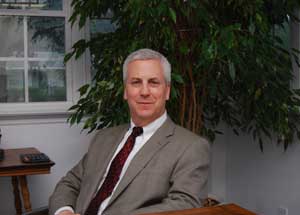Editorial
Front Page - Friday, September 25, 2009
CBA presents course on modification of child, spousal support
Samara Litvack

Cases regarding the modification of existing child support and spousal support decrees are becoming more and more common among today’s court dockets. Thanks to the current economic state, it seems that everyone, on either side of a settlement, needs more money. Those who are ordered to pay may be having a hard time coming up with the funds. Those who are receiving set amounts of money may need more than originally awarded to survive.
While these types of cases have been around forever, many attorneys are handling more of them than ever before. And though there haven’t been recent changes in child support or spousal support statutes, the rising frequency of filings is creating a need for attorneys to fine tune their child and spousal support modification techniques.
“It’s easy to come to court and say, ‘I lost my job’ or, ‘They’ve cut back my hours,’” says Barry Gold, local family law attorney. “The other side might say, ‘I was thinking I would have a better job by now’ or, ‘I haven’t been able to find one.’ It’s a different thing to be able to prove it.”
For this reason, the Chattanooga Bar Association is preparing to present a continuing legal education class entitled “Modification of Existing Child Support and Alimony Decrees: How to Prepare and Try a Support Modification Case.” The course will be held on Wed., Sept. 30, from 8:15 until 11:30 a.m., at the Walden Club.
“This is the first time that we have targeted this particular topic,” says Gold.
“We thought this was a really timely topic that would be of real interest and there’s been a really favorable response so far.”
Gold, who serves as chair for the CBA’s Family Law Section and vice chair for the same section of the Tennessee Bar Association, will be conducting the course and will provide attendees with some written materials they can take home with them afterward.
“I promised folks I’m not going to read to them,” he says. “I think that’s deadly dull. But we’ll work from the PowerPoint because I do think it’s a more interesting way of getting folks’ attention and helping follow along with it.”
Gold will focus on practical aspects of support modification and give his audience applicable examples. His goal is to make the course as useful and hands-on as possible, referencing case and statutory laws and recent cases to illustrate his points.
“We’ll talk about here’s what works, here’s what hasn’t worked and ways to make your case more effective, whether you’re on the side trying to modify the support or trying to keep it from being modified,” says Gold.
He will also invite questions during the course, as he will not be reading strictly from a prepared speech. If someone has a question, he says, it is likely that others in the class have the same question.
“My job, I think, is to make it interesting and to have everybody think they got more than their money’s worth from the presentation,” he says.
Judge Marie Williams, Circuit Court, Division III, will also be serving as a presenter, and Gold anticipates her question and answer session near the end of the course will be invaluable to those in attendance. Williams will offer a different perspective, explaining such things as what practices seem to be effective, what facilitates the court in making a decision and what is unhelpful to the court. With this knowledge, attorneys will be able to focus on how to present their cases in as compelling a way as possible.
“We really want to make it real pertinent, real useful,” says Gold.
“There’ll be some folks who don’t do a lot of (family law practice) but are interested in seeing more. They want to make sure that they’re up to snuff on what to do. And there will be some folks, I think, who are just curious, maybe don’t have much practice. Maybe they just need the hours, candidly. And hey, we welcome anyone, as far as attending it goes.”
For those participants not familiar with family law and, more specifically, child and spousal support statutes, Gold says this seminar can be used as a sort of guidebook for dealing with such cases.
“Part of what we’re hoping is folks who say, ‘This is an area I practice in or would like to,’ this would be a good seminar for them,” Gold says. “Only three hours’ time, which would include breakfast. They get the class, they get some useful information they could put really to bear in their practice immediately.”
The “stimulus” cost for CBA members is only $55, versus $125 for nonmembers. To sign up for this CLE course, contact the CBA at 423-756-3222.
Gold is a partner with the Chattanooga law firm of McWilliams & Gold, practicing primarily in family law. He received his A.B. degree, magna cum laude, and his J.D. degree, cum laude, from the University of Georgia. While a student there, he was elected to the Order of Barristers and Phi Beta Kappa.
Gold is a frequent speaker on family law and related topics before a variety of professional groups. He is a member of the CBA, TBA and the State Bar of
Georgia and frequently serves as a family law mediator in Tennessee. He has been a member of the TBA’s Family Law Section Executive Committee since 2002, has served as a member of the Tennessee Department of Human Services Income Shares Advisory Committee and currently serves as a hearing officer for the Tennessee Board of Professional Responsibility.
|
|